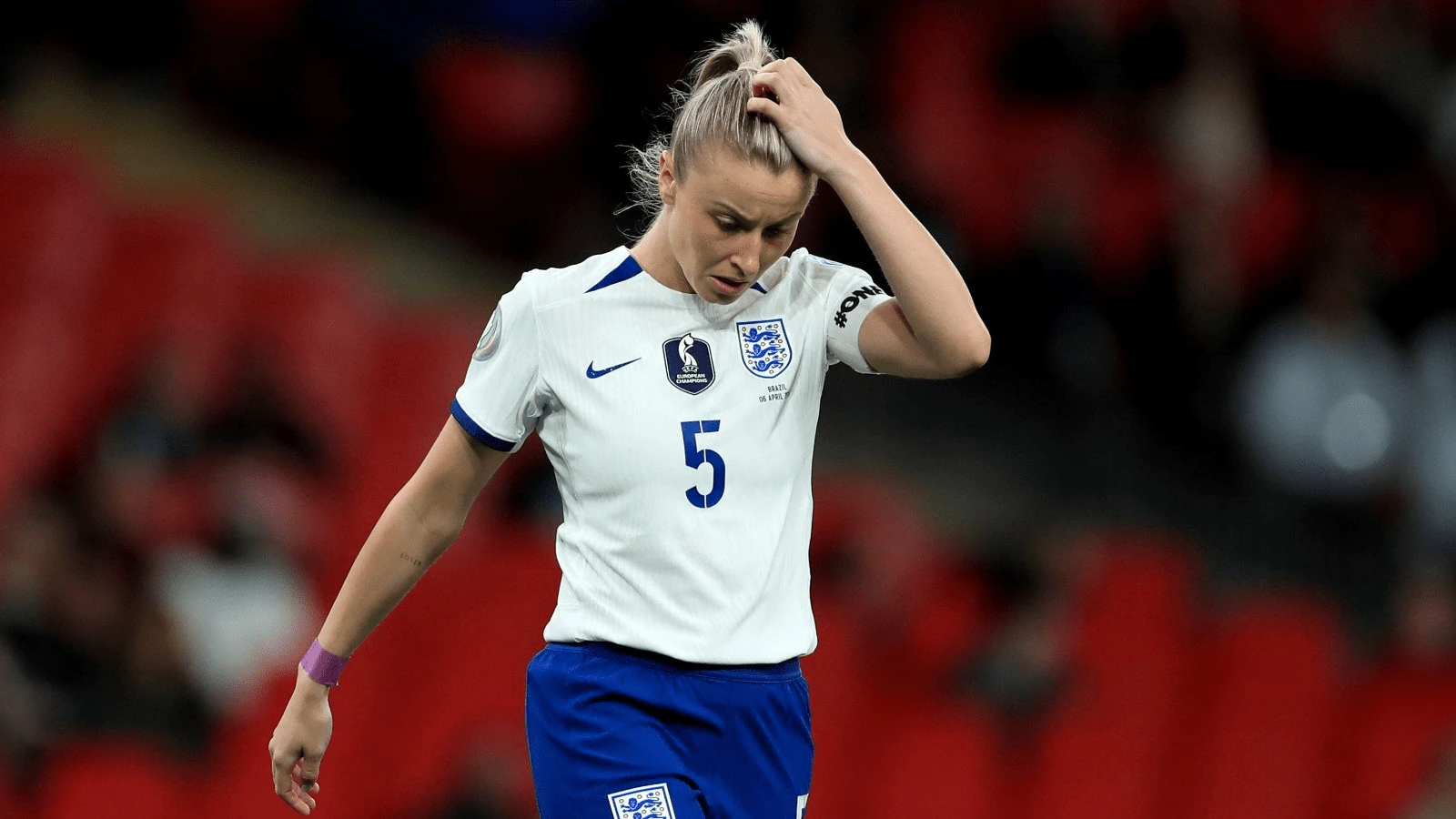The Impact of Menstruation on a Female Footballer and What to D…
Like this project
Posted Jun 12, 2023
Female Footballers Menstruate too!
Likes
0
Views
524

The Impact of Menstruation on a Female Footballer and What to Do About It 1
Menstruation is a topic that hasn’t received much attention, especially in women’s football.
However, female footballers menstruate, too, but no one talks about it, and it’s high time to shed more light on this topic.
Menstruation is a rollercoaster of emotions, cramps, and blood. This period takes its toll on women—and female football players are no exception.
Let’s delve into menstruation, its impact on female football players, and how best to deal with it.
Menstruation
Menstruation, menses, or a period is a regular monthly process in non-pregnant women with a functional uterus.
A breakdown and shedding of the walls lining the inner part of the uterus occurs. Hormones that are strictly regulated signal this process to start.
Menstruation marks the beginning of a woman’s menstrual cycle.
A woman’s menstrual cycle may span 21–35 days, with menstruation occurring within the first seven days. That may vary according to a woman’s cycle length.
For a 28-day cycle, a woman’s menstruation typically lasts five days.
The average duration of menstruation is 2–7 days.
During this 2–7 day period, the woman bleeds through her vagina and may experience abdominal cramping and discomfort.
Some women experience many symptoms in the weeks leading to their period. That is termed premenstrual syndrome (PMS).
Symptoms of Premenstrual Syndrome (PMS)
It’s easy to detect premenstrual syndrome as it exhibits typical symptoms, including:
Sudden or unexplained mood changes
Irritability
Constipation or diarrhea
Abdominal discomfort and flatulence
Weight gain
Pelvic pain
Tender or swollen breasts
Increased food appetite and cravings
Insomnia or excessive sleepiness
Fatigue
Increased sexual urges
These symptoms differ from woman to woman, ranging from mild to severe.
How Does Menstruation Affect Female Footballers?

The Impact of Menstruation on a Female Footballer and What to Do About It 2
Image Source: The Guardian
Menstruation has an impact on every female, including footballers.
The entire process involves changes in hormone levels, which may elicit significant changes in mood, energy levels, appetite, strength, sleep, etc. These changes can affect the performance of female football players.
Football players on their period have reported experiencing a series of PMS symptoms starting a few weeks before the beginning of their menses.
These symptoms range from physical to psychological and vary from player to player.
Physical Impact of Menstruation on Female Football Players

The Impact of Menstruation on a Female Footballer and What to Do About It 3
Image Source: SportsLogos
Here are several typical physical effects of menstruation on female football players.
Reduced Strength and Performance
Football is a game that requires maximum strength and performance. However, the hormonal changes associated with menstruation affect those abilities in female football players.
During menstruation, there’s a drop in the levels of a female hormone called estrogen. A scientific study on the menstrual cycle’s effect on exercise performance has demonstrated that this hormone positively affects muscle strength and performance.
With a drop in estrogen levels, overall performance and muscle strength may decline.
Easy Fatigability and Reduced Endurance
Football, being a physically tasking career, requires players to be capable of stretching themselves to their limits.
During menstruation, there’s a drop in activity levels, and tiredness or fatigue kicks in earlier than usual.
That may be due to the drop in estrogen levels, which several studies have proven to associate with decreased muscle strength.
Scientists have also suggested that decreased serotonin levels during menstruation might be the culprit. Serotonin is a hormone that regulates mood, and its lack may result in reduced motivation and, subsequently, period fatigue.
Sudden Weight Gain
Most footballers have balanced diets to maintain a healthy weight and be most productive and effective.
However, menstruation can lead to weight gain due to increased appetite and water retention during a period.
Increased appetite and cravings are typical PMS symptoms that may lead to higher calorie intake and weight gain. The same goes for water retention due to hormonal action during menstruation.
This sudden weight gain during menstruation among female footballers contributes to decreased physical performance.
Cramps and Discomfort
Pain and discomfort or cramping are not unusual during menstruation. However, some women don’t experience it.
The severity of this symptom varies among women, ranging from mild cramping to severe pain.
As such, menstrual cramps affect a female football player’s efficiency and productivity and can even lead to the player’s absence from training or games. It’s one of the most significant problems affecting a professional female athlete’s career.
Insomnia or Difficulty Sleeping
Several female football players have complained of insomnia during menstruation.
That may be due to a fall in progesterone hormone levels during menstruation. Additionally, decreased melatonin hormone levels during PMS have been implicated as a significant cause of sleep difficulty.
That can lead to excessive weakness and fatigue the next day due to sleep deprivation. The lack of healthy sleep before a game or training session also causes a loss of coordination and concentration, contributing to a decline in the player’s performance.
Psychological Impact of Menstruation on Female Football Players

The Impact of Menstruation on a Female Footballer and What to Do About It 4
Image Source: Football365
Let’s explore the psychological impact of menstruation on female football players.
Mood Disturbances
During menstruation, the associated drop in estrogen and progesterone leads to changes in mood. These mood changes may be slight or severe, causing emotional outbursts.
Mood disturbances during menstruation can lead to a lack of motivation and zeal to participate in football games and training, further decreasing a female football player’s efficiency and performance.
Increased Self Consciousness
Most female football players become more self-conscious during menstruation, especially during games. This self-consciousness comes from the fear of having leaks and period stains during a football game.
Also, during this phase, decreased estrogen and serotonin levels contribute to increased emotional sensitivity and self-consciousness.
Anxiety
Anxiety can occur in the weeks leading to menstruation or during PMS. Its occurrence may be due to reduced serotonin levels associated with menstruation.
The severity of anxiety varies from mild to severe. In severe cases, players may be excluded from games or training for some time.
How to Deal with the Impact of Premenstrual Syndrome and Menstruation on Female Football Players

The Impact of Menstruation on a Female Footballer and What to Do About It 5
Image Source: Olympics
Menstruation is a beautiful part of a woman’s life and should never be seen as a weakness, even in women’s football.
Menstruating and being a professional female football player aren’t mutually exclusive.
Here are some practical ways to work through menstruation and its hurdles as a female football player.
Incorporation of Cycle-Tailored Training
Women’s professional football teams and clubs should tailor training sessions to individual menstrual cycles. They shouldn’t take a one-size-fits-all approach.
Every part of the menstrual cycle affects female football players, which coaches should consider when planning training schedules.
Cycle Tracking
Tracking the menstrual cycle helps female football players know when to expect their next menstruation and prepare mentally and physically for it.
They can track the menstrual cycle with a calendar or a dedicated mobile app.
Birth Control Pills
Birth control pills are best for female football players with irregular periods or those who want to control their menstrual cycle better.
Oral contraception requires a daily dose and helps regulate the menstrual cycle. It gives players the chance to predict and plan for periods.
However, it might provide only some women with the desired effect as each has a different physiology.
Adequate Medical Care
Adequate medical therapy can alleviate some effects of menstruation on female football players.
Pain relief medications are excellent for calming cramps and inflammation associated with menstruation.
Also, having counselors or psychologists on board might help with severe mood disturbances.
Jersey Changes
As of late, many football clubs in Europe have adopted dark-colored shorts for female football players.
This change came after many raised concerns about female players wearing all-white jerseys during their periods.
In a recent announcement, Nike informed the public of the company’s intentions to release leak-resistant shorts for female football players on their periods. That is very encouraging, showing that women’s football receives more attention and concern than ever—as it should.
Health Education of Players
Female football players should receive adequate education on the menstrual cycle, including what it entails, how to track it, and what changes to expect at every point.
Studies have shown that several female football players were unaware of their menstrual cycle and how to track it.
Arming themselves with this information will help players take charge of their health and well-being.
Conclusion
Women’s football is finally leaving the dark age of being ignored and underrated. Still, there’s no adequate discussion or research on the impact of menstruation on female football players. Not enough studies have been conducted to understand how much menstruation impacts female football players.
However, the proven solutions above can help female football players deal with the effects of menstruation and elevate their performance on the pitch.







